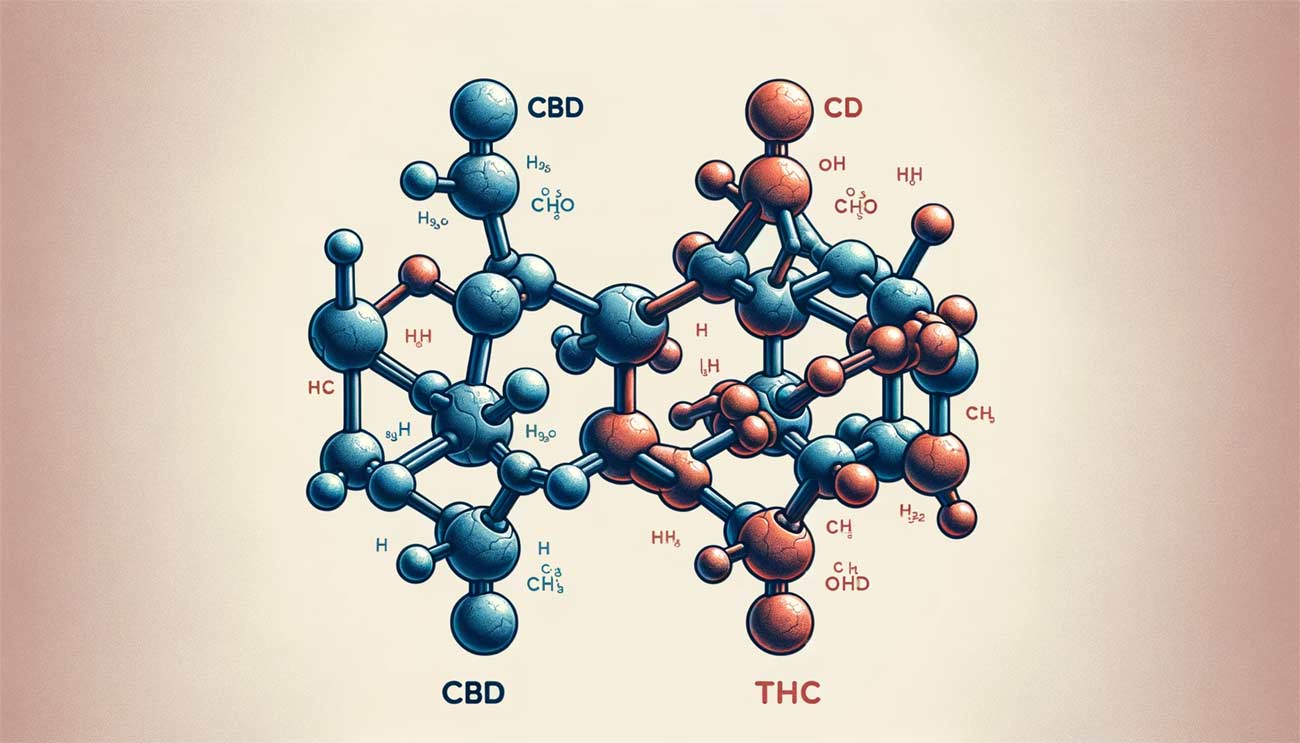The debate on whether CBD or THC is better for enhancing workout performance is a contemporary topic in sports science and wellness communities. With the increasing acceptance of cannabis derivatives in athletic circles, this question demands a thorough exploration backed by scientific evidence and expert insights.
Potential Benefits and Risks of Using CBD or THC Pre-Workout
01. Enhancing Focus and Body Awareness
CBD and THC can enhance focus and body awareness, beneficial for exercises requiring mindfulness and concentration. This can be particularly advantageous for athletes with attention disorders.
02. Muscle Relaxation and Airway Opening
THC may relax muscles and potentially open up airways, aiding in muscle repair post-workout and possibly enhancing respiratory efficiency during cardio-intensive exercises.
03. Risks and Cautions
While the benefits are notable, there are risks. Cannabis can slow reaction times and affect cardiovascular responses like heart rate and blood pressure. Thus, cautious and minimal use, especially for intense physical activities, is advised.
Exercise and Cannabis: What Does Science Say?
Cannabis Use Among Athletes
Despite being on the prohibited substance list of the World Anti-Doping Agency, cannabis use is prevalent among athletes for both recreational and performance purposes. The effects of cannabis on exercise are still under research, with current evidence being inconclusive about its impact on performance.
Physiological Effects of Cannabis
Cannabis has been shown to affect cardiovascular and respiratory functions at rest, which could theoretically influence exercise performance. However, most research has been conducted outside the context of athletics, leaving its impact on sports performance largely speculative.
The Role of CBD and THC in Pain Management and Recovery
Both CBD and THC have been recognized for their potential in pain management, a crucial aspect of exercise recovery. Studies suggest they could help in reducing pain and inflammation, making them promising for post-exercise recovery.
Cannabis and Sleep
Improving sleep quality is crucial for recovery, and cannabis users often report better sleep. However, the evidence regarding the sleep-enhancing effects of CBD and THC is mixed, with some studies showing improvement and others indicating potential disturbances in sleep patterns with chronic use.
Best Practices for Taking CBD or THC Before a Workout
Ideal Timing for Consumption
Taking CBD or THC before a workout can potentially offer pre-exercise benefits. It’s important to consider the onset time of different consumption methods to ensure optimal timing. Experimenting with the timing allows individuals to find what works best for their specific needs.
The onset time varies depending on how it is consumed. For example, if you choose to ingest CBD through capsules or edibles, it may take longer for the effects to kick in compared to sublingual tinctures or vaping. Therefore, it’s recommended to consume CBD at least 30 minutes before your workout session.
On the other hand, THC has a more immediate effect when inhaled through smoking or vaping. The effects can be felt within minutes, making it suitable for those who prefer instant results. However, keep in mind that smoking may have its own drawbacks and potential health risks.
To determine the ideal timing for consuming CBD or THC before a workout, individuals should consider their personal preferences and goals. Some may find that taking it shortly before exercising enhances their performance and focus, while others might prefer giving themselves more time for the effects to fully kick in.
Suggested Dosages Based on Body Weight
When determining dosages of CBD and THC, body weight plays an important role. It’s generally recommended to start with lower doses and gradually increase if needed. Seeking professional advice from a healthcare provider or cannabis specialist can also help determine appropriate dosages based on individual needs.
For CBD usage, dosage guidelines typically range from 1-6 milligrams per kilogram of body weight. This means that someone weighing 70 kilograms would start with a dosage between 70-420 milligrams of CBD per day. However, these are general recommendations and may vary depending on factors such as tolerance levels and desired outcomes.
In contrast, THC dosages are typically measured in milligrams and can vary significantly depending on individual tolerance and experience. It’s crucial to start with a low dose, such as 2-5 milligrams of THC, especially for those new to cannabis or who have a low tolerance. Gradually increasing the dosage allows individuals to gauge their sensitivity and find the optimal amount for their workout routine.
Potential Side Effects to be Aware Of
CBD is generally well-tolerated, with minimal side effects reported. Some individuals may experience mild symptoms such as drowsiness, dry mouth, or changes in appetite. However, these effects are typically temporary and subside over time.
On the other hand, high doses of THC can potentially lead to adverse reactions such as anxiety or paranoia. It’s essential to understand individual sensitivities and monitor any negative effects that may arise after consuming THC before a workout. If any discomfort is experienced, it’s advisable to reduce the dosage or seek professional advice.
Comparing CBD and THC for Workouts
CBD: A Safer Bet for Athletes?
CBD’s non-psychoactive nature and its potential in reducing inflammation and pain make it a preferred choice for athletes focusing on recovery and pain management without the psychoactive effects of THC.
THC: Use with Caution
THC’s psychoactive properties and potential cardiovascular effects make it a more complex choice for athletes. Its use may be more suited for relaxation and muscle spasticity relief but should be approached with caution due to potential performance and legal implications.
Conclusion
The choice between CBD and THC for workout enhancement is nuanced. CBD appears to offer a safer profile for athletes, focusing on recovery and pain management. THC, while beneficial in some aspects, comes with greater risks and uncertainties. Given the limited and inconclusive scientific evidence, athletes should prioritize safety and legal considerations when exploring the use of these substances in their fitness regimen.

